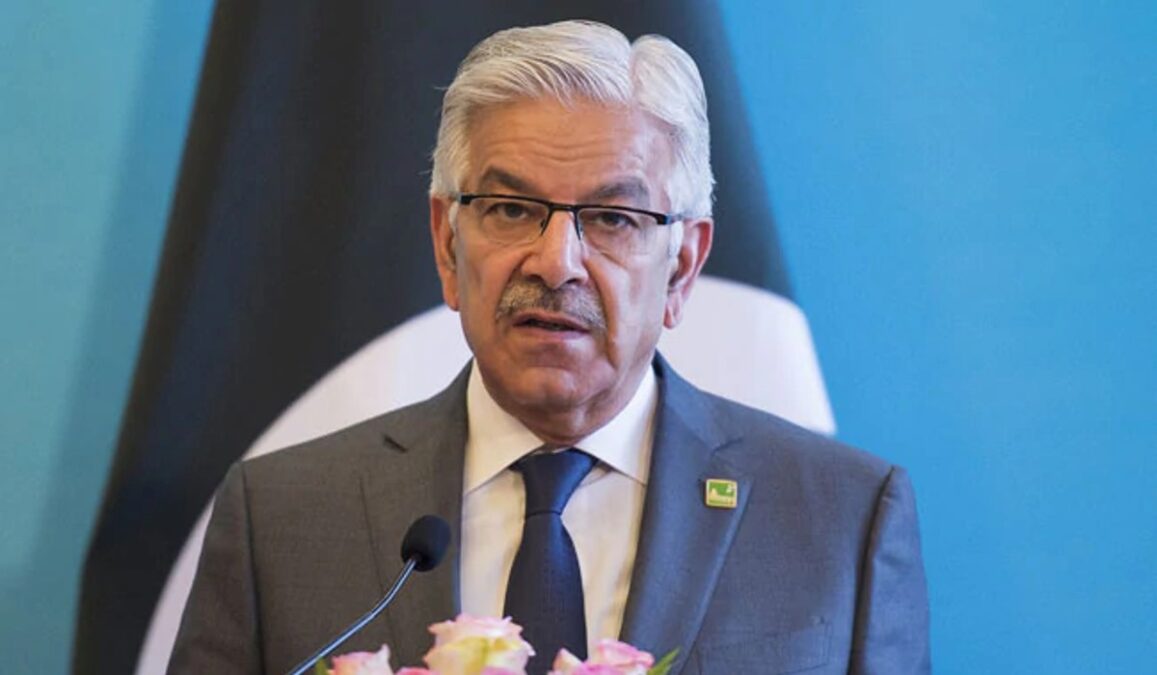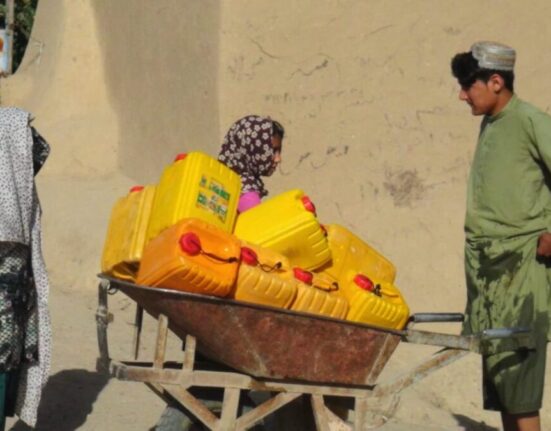Amid escalating violence in Pakistan, Defense Minister Khawaja Asif has asserted that the country’s deteriorating security situation is directly linked to Afghanistan under Taliban rule.
Speaking to reporters, Mr. Asif claimed that recent security incidents in Pakistan originate from Afghan soil and dismissed the Taliban’s denials as unacceptable. He also accused India of exploiting the instability to undermine Pakistan.
Pakistan’s Foreign Ministry echoed Mr. Asif’s concerns, stating that it has repeatedly shared evidence with the Taliban about militant groups operating from Afghan territory. According to the ministry, these groups enjoy safe havens and freedom of movement in Afghanistan, raising significant concerns for Islamabad.
In recent weeks, Pakistan has experienced a surge in deadly attacks. The latest occurred in the northwestern province of Khyber Pakhtunkhwa, where a gunman targeted a convoy of Shiite Muslims, killing at least 42 people and wounding 20 others. The attack, one of the deadliest in recent years, has yet to be claimed by any group.
Taliban tensions and accusations
Mr. Asif stressed the gravity of the cross-border threats, saying, “What is happening in Pakistan is linked to Afghanistan. All these incidents originate from Afghan soil. If the Taliban claim ignorance or deny their involvement, that cannot be true. At the same time, India is openly supporting this situation.”
Pakistan has long called on the Taliban to take action against the Tehrik-i-Taliban Pakistan (TTP), a militant group that Islamabad alleges is based in Afghanistan. However, the Taliban continue to deny these claims, arguing that Pakistan’s security challenges stem from its own internal weaknesses.
The security crisis in Pakistan has also drawn analysis from Afghan and regional experts. Ahmad, a former Afghan ambassador to the United Arab Emirates, recently stated at a conference in the United States that the Taliban maintain complex relationships with groups such as Al Qaeda, the TTP, and ISIS. He added that the Taliban prioritize other threats over these groups, downplaying the risks posed by the TTP and Al Qaeda.
Ali Ahmad Jalali, a former Afghan interior minister, noted that the main threat emanates from the regional presence of certain terrorist organizations. “The Taliban govern Afghanistan, but groups like Al Qaeda are currently in a state of strategic silence,” Mr. Jalali said. He added that regional countries are seeking to engage with the Taliban to manage the threats emerging from Afghan territory.
The escalating tensions have strained Pakistan’s relationship with the Taliban, which was already marked by mistrust. Islamabad has repeatedly urged the Taliban to extradite TTP leaders to Pakistan, but the Taliban have refused, further complicating ties between the two neighbors.





